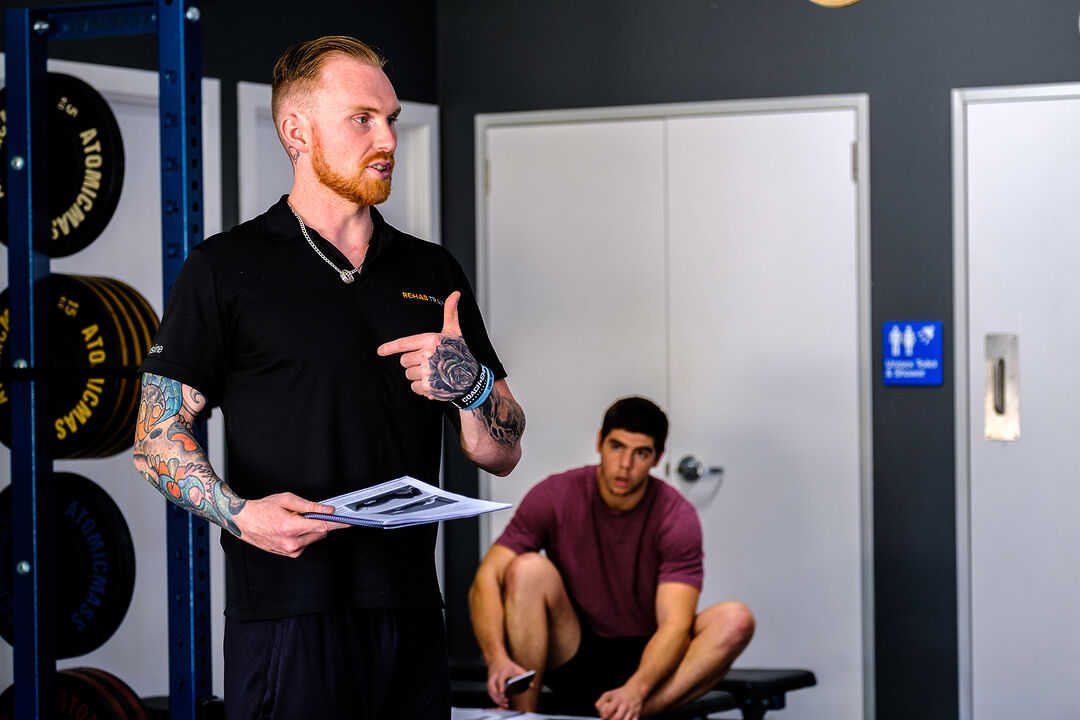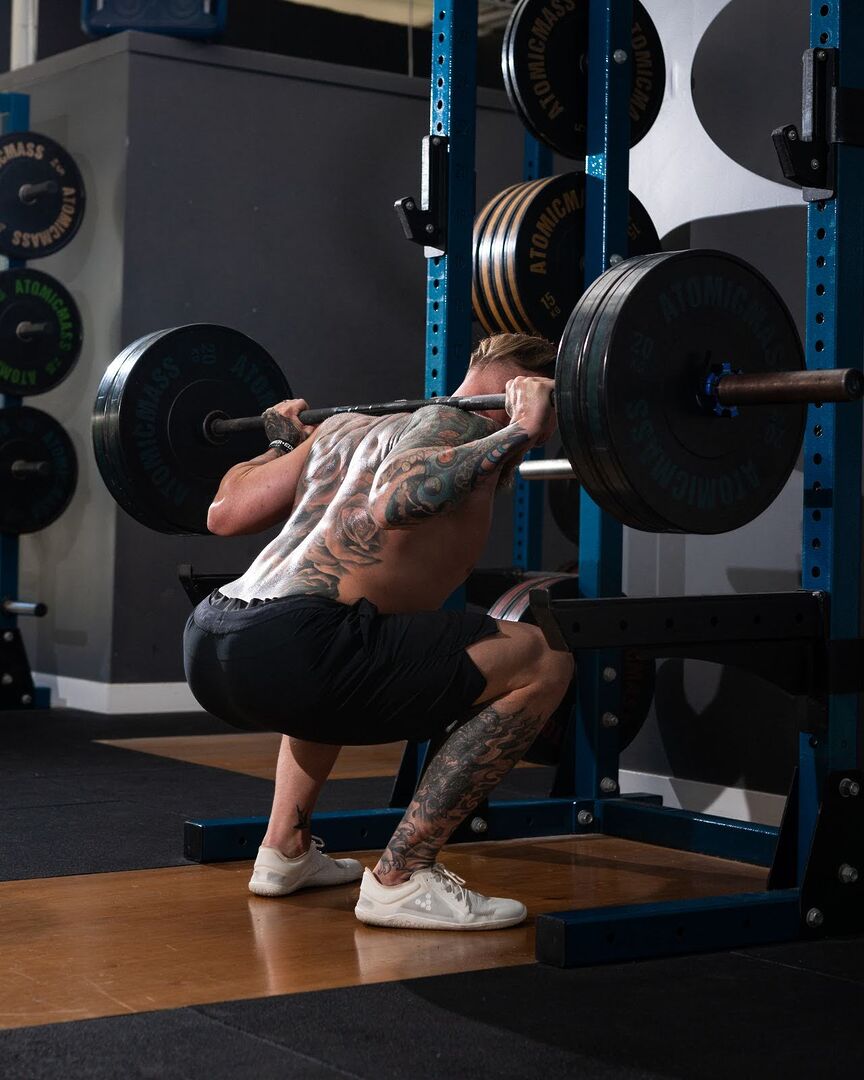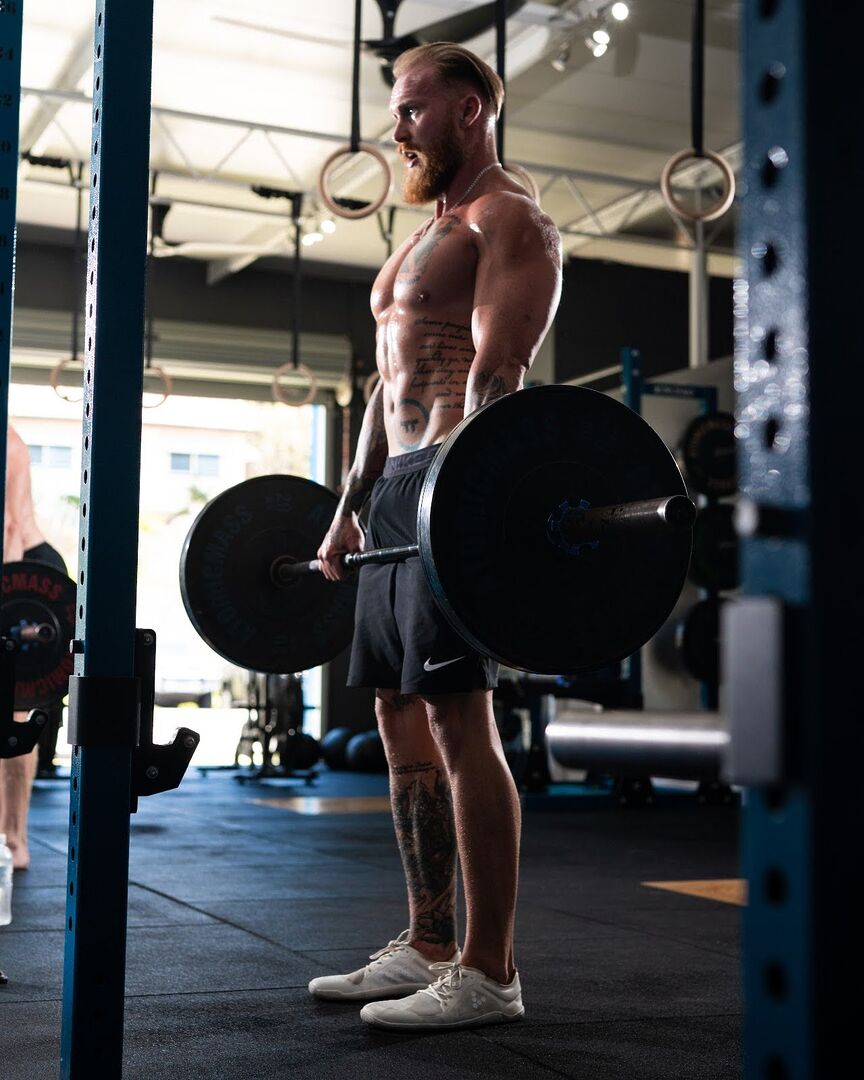Starting a fitness journey can be a challenge for a lot of people and one big hurdle to get over is the starting weight you are able to lift. Being confronted with the weight you’re starting with vs the weight you think you should be lifting can be a hard hit to the ego and motivation. But rest assured that weight isn’t actually your strength, a big limiting factor to being able to express your true strength is how coordinated you are at the lift. When starting out you’re pretty much lifting blind, your brain doesn’t have a good handle on how to perform and this in turn limits the amount of force you’re allowed to express.
Along the journey, as you progress and start lifting more your first strain/injury usually comes from the way you originally learned how to lift, that coordination will only allow a certain amount of weight before a lack of stability shows its weakness.
At this point, it is common within the industry to keep bulldogging exercise till something breaks or this is where people start to give up… again.

In the fitness industry, you will most definitely come across someone whether that be a coach, another gym-goer, or a blog/research paper suggesting that, for the most part, lifting technique doesn’t matter. “As long as you can lift the weight without pain it’s ok”, or “research shows that a rounded spine during a deadlift is perfectly fine”. Those sentences alone do not give me the confidence to lift to my current highest potential. To clarify some things around this, you will notice if you look closer that those who say technique doesn’t overly matter aren’t lifting that heavy themselves. You will find these people stop focusing on progressing the weight on the bar and start hyper-focusing on accessory movements. Anyone that lifts heavy, I’m talking 2x bodyweight plus will tell you technique most certainly matters.
And if you’re diving down the research pathway you’ll usually find that the test subjects aren’t lifting that heavy themselves either and usually the strength program isn’t carried out long enough for a strain/injury to occur.
Saying technique doesn’t matter is almost like saying the road rules are just rough guidelines that don’t matter if you follow them or not.
Why technique matters as you progress in strength and fitness is that you need to be able to deliver maximal neural drive to the muscle, the neural drive is what grows the muscle in size, strength, and speed. The neural drive is like the floodgates of how much force you can produce and that is governed by the nervous system seeing safety in stability.
The newby starting exercise for the first time with little to no competency in a lift will have lots of instabilities and that limits how much you can lift as your nervous system sees these instabilities as threats. Protecting a joint/s is more important to your body than lifting something. As you learn how to perform the lift you’re learning how to be more stable, which increases the nervous system’s ability to increase neural drive which increases power output.
Ignoring these threats by not changing or improving your technique will put an inappropriate amount of stress on a joint/s that shouldn’t and that makes you vulnerable to an injury or lack of motivation as you can’t see any progression in the workouts.

When you start a fitness journey for the first time, or after a decent amount of time off your training should primarily be skill acquisition with progressive overload coming after movement competency has progressed to an acceptable level. Usually, you would progress through slightly increased weights coinciding with lowering reps, once you get to a stage where you’re lifting weights you can’t get more than 3-5 reps your instabilities within that technique will show up.
At this point taking time out to go back to skill acquisition-based workouts should begin again. This recovers the body and gives you a chance to work on changing technique and creating more stability to express more force when you progress back to maximal weights again.
Cycling like this allows you to lift longer in life and reduce undue stress or injury along the way.
Attack your training progressions with a movement quality comes first approach and I guarantee your fitness journey will be a lot more comfortable, enjoyable, safe, and progressive for a long time.
Working out isn’t worth an injury, use working out to prevent injuries.
Lifting technique is ideal and everyone should be coached by a professional to perfect each and every lift they do.
If you need help with how your lifting technique, contact us at The Functional Training Institute. We specialize in various training tools along with the best way to coach them safely and correctly.
For for Newsletter

